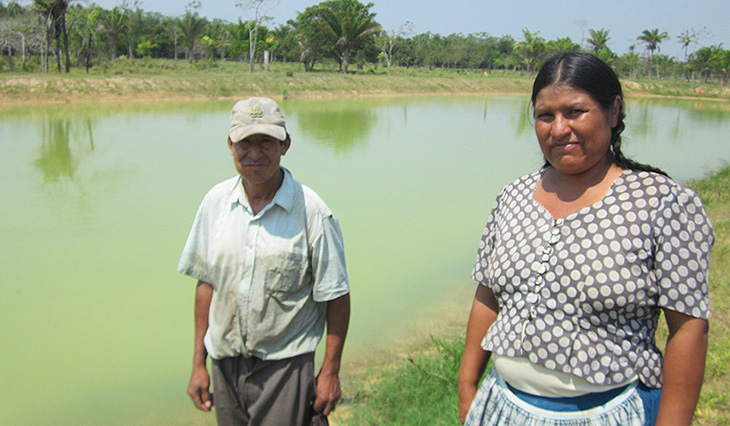In the Bolivian Amazon, women take ownership of aquaculture

In the rural municipality of Yapacani in Bolivia, a recent project undertaken by an alliance of local aquaculture and agriculture collectives and researchers from Canada, Bolivia and Brazil has resulted in a drastic remarkable expansion of economic opportunities for women, and a boost to the overall economy and health of the region.
Rural residents of Yacapani, many of whom live in poverty, have traditionally relied mainly on single-crop rice farming as a source of income, and the limited number of fish farmers in the area also tended to raise only one type of fish, the pacu species. The Peces Para la Vida (Fish for Life) project, which concluded in 2014, trained farmers in fish polyculture techniques, effective water management and other skills, to improve the overall sustainability and productivity of their aquaculture practices. The project has increased fish production by eight times in the region, and in households that adopted fish farming, incomes grew an average of $15,000 USD from a baseline average income of $3,000. Increased consumption of fish has also been a benefit to the health of the community.
An emphasis on training women in the new fish-farming technologies has resulted in women assuming far greater authority over household finances, taking on greater leadership roles in their communities, and, and learning important management skills through ownership of their own productive assets. Forty-five out of 50 members of the Yapacani Northern Integrated Pisciculture Association, one of the two local organizations involved in the project, are women. These women have been able to triple their families’ incomes, and have gained a greater voice in both household and municipal decision-making.
Now, the success of the Peces Para la Vida project may encourage the expansion of aquaculture technologies to other areas of Bolivia. For more details, read the full story (pdf) by Canada’s International Development Research Centre (IDRC), who provided funding for the project.



